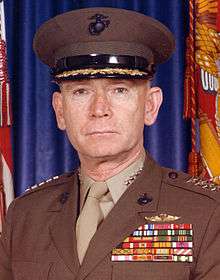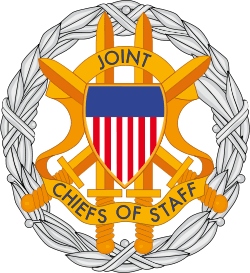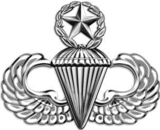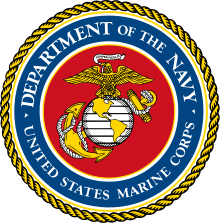Paul X. Kelley
| Paul X. Kelley | |
|---|---|
 General Paul Xavier Kelley, United States Marine Corps 28th Commandant of the U.S. Marine Corps (1983–1987) | |
| Birth name | Paul Xavier Kelley |
| Born |
November 11, 1928 Boston, Massachusetts, U.S. |
| Allegiance |
|
| Service/branch |
|
| Years of service | 1950–1987 |
| Rank |
|
| Commands held |
2nd Battalion 4th Marines 1st Marine Regiment 4th Marine Division Rapid Deployment Joint Task Force Assistant Commandant Commandant of the Marine Corps |
| Battles/wars | Vietnam War |
| Awards |
Defense Distinguished Service Medal Navy Distinguished Service Medal Army Distinguished Service Medal Air Force Distinguished Service Medal Silver Star Medal Legion of Merit (3) w/ Combat "V" Bronze Star Medal (2) w/ Combat "V" |
| Other work |
Cassidy & Associates American Battle Monuments Commission (Chairman) |
Paul Xavier Kelley (born November 11, 1928) is a retired United States Marine Corps general who served as the 28th Commandant of the U.S. Marine Corps, from July 1, 1983, to June 30, 1987.
Kelley served 37 years active duty in the Marine Corps. After his commission in 1950, he served as an infantry officer in a wide variety of billets. His first assignment after receiving his commission through Villanova College's Naval ROTC program was with Aircraft Engineering Squadron 12 (AES-12) at Marine Corps Air Station Quantico, Virginia. He then served as an exchange officer with the Royal Marines. He then joined the Marine Force Reconnaissance community and served with distinction during the Vietnam War. His final assignments were as Assistant Commandant of the Marine Corps and then Commandant of the Marine Corps until his retirement in 1987.
Following his retirement from the Marine Corps, Kelley has served on a number of corporate boards.
Biography
Paul Kelley was born on November 11, 1928, in Boston, Massachusetts. He earned his Bachelor of Science degree in Economics from Villanova University in 1950.
Kelley was commissioned a second lieutenant in the U.S. Marine Corps in June 1950. After The Basic School in March 1951, he served with the 2nd Marine Division at Camp Lejeune, North Carolina as an infantry officer in a wide variety of billets, including his first assignment to Aircraft Engineering Squadron-12 (AES-12) out of Marine Corps Base Quantico in Virginia. In September 1952, he was assigned to the USS Salem (CA-139) where he served for 20 months, first as Executive Officer and then as Commanding Officer of the Marine Detachment on the Salem. In December 1953, he was promoted to captain.
From July 1956 to December 1957, Kelley served as the Special Assistant to the Director of Personnel at Headquarters Marine Corps, Washington, D.C.. He then completed the Airborne Pathfinder School at Fort Benning, Georgia.
In February 1958, he was assigned to the newly activated 2nd Force Reconnaissance Company, Force Troops, Fleet Marine Force, Atlantic, Camp Lejeune, when he served as the Executive Officer and then Commanding Officer.
From September 1960 to May 1961, he was the U.S. Marine Corps Exchange Officer with the British Royal Marines, becoming one of the few foreigners to earn the Royal Marines Commandos' coveted green beret. During this tour, he attended the Commando Course in England, served as Assistant Operations Officer with 45 Commando in Aden, and as Commander "C" Troop, 42 Commando in Singapore, Malaya and Borneo. On March 1, 1961, he was promoted to major. From June 1964 until August 1965, Kelley became Commanding Officer, Marine Barracks, Newport, Rhode Island.
In 1965, he deployed to Vietnam. He first served as the Combat Intelligence Officer for the 3rd Marine Amphibious Force, FMF, Pacific. Following this assignment, he served as the Commanding Officer, 2nd Battalion, 4th Marine Regiment in combat. He was promoted to lieutenant colonel on January 20, 1966. During his tour as battalion commander, he earned the Silver Star, the Legion of Merit with Valor device and two awards of the Bronze Star with Valor device.
Four years later, 1970 to 1971, Kelley commanded the 1st Marines, which was the last Marine regiment in combat in Vietnam; earning a second Legion of Merit.
In 1974, Kelley was promoted to the rank of brigadier general. As a general officer, he served as Commanding General of the 4th Marine Division, Fleet Marine Force; Director, Marine Corps Development Center; Director, Marine Corps Education Center; and Deputy Chief of Staff for Requirements and Programs, Headquarters, U.S. Marine Corps.
In February 1980, Kelley was promoted to lieutenant general and named as the first Commander of the Rapid Deployment Joint Task Force.[1]
From July 1, 1981, Kelley was promoted to the rank of General and became the Assistant Commandant of the Marine Corps and Chief of Staff, Headquarters Marine Corps. On July 1, 1983 Kelley was named Commandant of the Marine Corps, succeeding General Robert H. Barrow.
Promotion record
- June 1950 — commissioned as Second Lieutenant
- December 16, 1953 — Captain
- March 1, 1961 — Major.
- January 20, 1966 — Lieutenant Colonel
- April 1, 1970 — Colonel
- August 6, 1974 — Brigadier General
- June 29, 1976 — Major General
- February 4, 1980 — Lieutenant General
- July 1, 1981 — General
Post-Marine Corps career
In 1989, Kelley joined the Washington, D.C. public policy firm Cassidy & Associates; he is the Vice Chairman Emeritus.[2] From 1989 to 1994, he served as Chairman of the American Battle Monuments Commission.[2] Kelley is on the board of directors for a number of corporations, including Allied Signal, Inc., GenCorp, Inc., Saul Centers, Inc., Sturm Ruger & Co., Inc.; and the Wackenhut Corporation.[2][3]
On July 26, 2007, the Washington Post published an op-ed by Kelley and Robert F. Turner, in which they warned that the July 20, 2007. executive order issued by President George W. Bush, purporting to define torture and allowable interrogation methods, appeared to violate Common Article 3 of the Geneva Conventions and thus expose the President and other persons to potential liability for war crimes. On November 9, 2010, he was named an honorable Reagan Fellow from Eureka college.[4] Kelley currently sits on the Honorary Board for the 501 (c) (3) Non Profit Wine Country Marines [5]
Military awards and badges
Kelley's decorations, awards, and badges include:
 | ||||
 | ||||
  | ||||
- Note: The gold US Navy Parachute Rigger badge was worn unofficially by USMC personnel in place of US Army parachutist badge from 1942-1963 before it officially became the Navy and Marine Corps Parachutist insignia on July 12, 1963 per BuPers Notice 1020. Members of the Marine Corps who attended jump school before 1963 were issued the silver Army parachutist badge but may be depicted wearing the gold Navy Parachute Rigger badge as it was common during this time period to do so.
Civilian
Kelley has been awarded honorary doctoral degrees from Villanova University, Norwich University, Webster University, Jacksonville University, and the United States Sports Academy.
He is the recipient of the National Geographic Society’s Major General O.A. Anderson Award, the Veterans of Foreign Wars’ National Armed Forces Award, the American Academy of Achievement’s Golden Plate Award, the Navy League’s Admiral John M. Will Award, the Ireland Fund’s Irishman of the Year for Southern California Award, the Reserve Officers Association’s Minuteman Hall of Fame Award, and the Marine Corps Scholarship Fund’s Semper Fidelis Award.
In December 2006, Kelley chaired a panel of military and business leaders looking to improve the U.S.’s energy security. They recommended tougher emission standards and greater access to offshore U.S. gas and oil reserves.[5]
In 2007, in an op-ed piece in the Washington Post, Kelley and Robert F. Turner, a Reagan Administration lawyer, spoke out against President George W. Bush's executive order interpreting Common Article 3 of the 1949 Geneva Conventions — concerning the interrogation and torture of terrorism suspects.[4]
Eureka College, alma mater of President Ronald Reagan, named Kelley as its third "Honorary Reagan Fellow" to celebrate his lifetime of service and leadership on November 9, 2010, at the Reagan Building in Washington, D.C. The date was chosen to correspond with the 21st anniversary of the fall of the Berlin Wall.
See also
- List of United States Marine Corps four-star generals
- Commandant of the Marine Corps
- Assistant Commandant of the Marine Corps
Notes
- ↑ Simmons, Edwin Howard (2003). The United States Marines: A History. Naval Institute Press. p. 264. ISBN 978-1-55750-868-3. Retrieved March 2, 2009.
- 1 2 3 "General Paul X. Kelley". Staff Bios. Cassidy and Associates. Archived from the original on 2007-03-02. Retrieved 2006-11-26.
- ↑ "Profile: Paul X. Kelley". Forbes.com. 2008. Retrieved March 2, 2009.
- 1 2 Kelley, P. X.; Robert F. Turner (July 26, 2007). "War Crimes and the White House; The Dishonor in a Tortured New 'Interpretation' of the Geneva Conventions". Washington Post. p. A21. Retrieved 2007-08-08.
- ↑ Ivanovich, David (December 13, 2006). "Leaders urge tougher fuel standards, more offshore access". Houston Chronicle.
References
- "General Paul X. Kelley, USMC". Who's Who in Marine Corps History. History Division, United States Marine Corps. Archived from the original on April 14, 2012. Retrieved March 2, 2009.
- "Official Biography: General Paul X. Kelley". Biographies: General Officers & Senior Executives. Manpower & Reserve Affairs, United States Marine Corps. April 22, 1987. Retrieved 2007-05-25.
- "Nomination of General Paul X. Kelley To Be Commandant of the Marine Corps". Ronald Reagan Presidential Library. March 24, 1983. Retrieved 2007-05-25.
- Kelley, P.X.; Robert F. Turner (July 26, 2007). "War Crimes and the White House; The Dishonor in a Tortured New 'Interpretation' of the Geneva Conventions". Washington Post. p. A21. Retrieved 2007-08-08.
External links

Wikimedia Commons has media related to Paul X. Kelley.
| Military offices | ||
|---|---|---|
| Preceded by Gen. Robert H. Barrow |
Commandant of the United States Marine Corps 1983–1987 |
Succeeded by Gen. Alfred M. Gray, Jr. |
